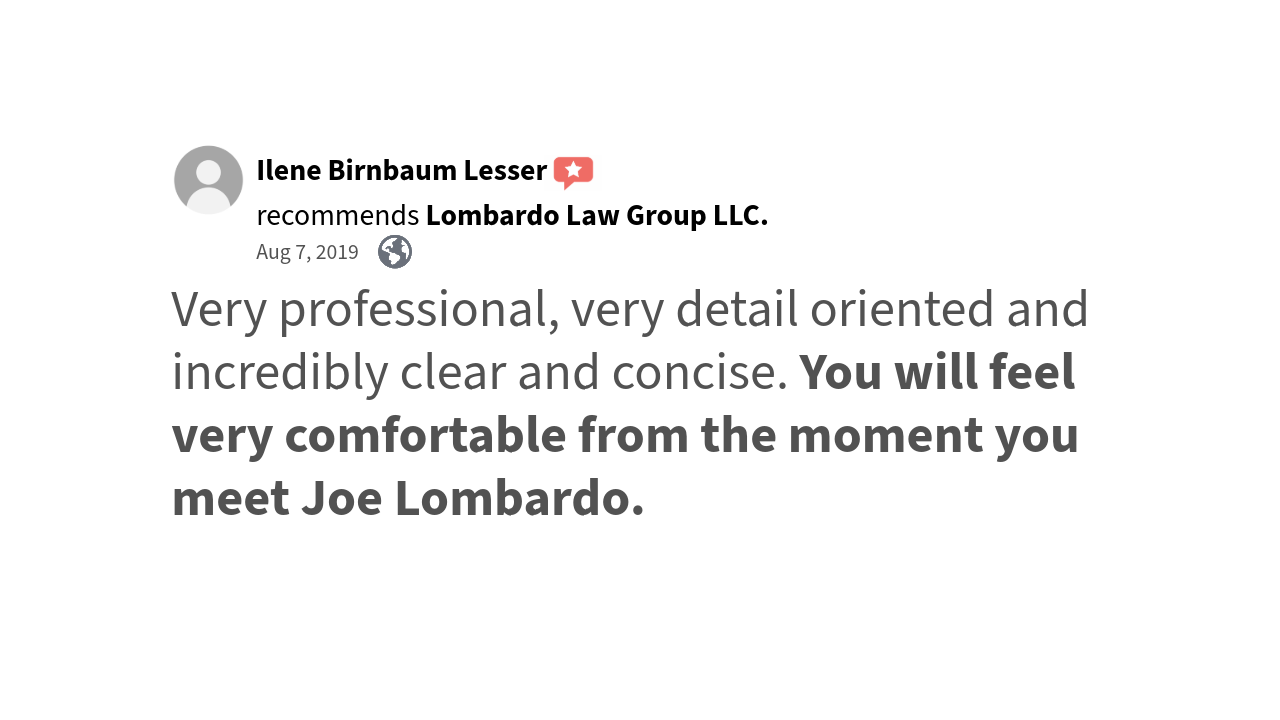
legal matters lawful illegal accusations NJ lawyers DWI specialist DWI lawyer
About Lombardo Law Group



About
Vision

Founded in 1993 by Joseph A. Lombardo, Esq., Lombardo Law Group (LLG) is a trusted New Jersey law firm known for experienced trial attorneys serving all of South Jersey and the Jersey Shore. LLG provides knowledgeable, results-driven legal representation in criminal defense, DWI, domestic violence, divorce and child custody, juvenile defense, workers’ compensation, and personal injury cases.

You deserve a legal team that prioritizes your needs and works tirelessly to achieve the best outcomes for you. We promise to provide you with:
-
Knowledge: Collectively, we have over 175 years of legal experience
-
Loyalty: Trusted South Jersey attorneys with over 40 years of proven legal experience
-
Honor: We hold ourselves to the highest standards in every matter we handle because trust is earned through integrity
-
Efficacy: We work to obtain the best and most favorable outcomes for our clients
175+
Total Years of
Experience
40K
Clients Successfully Served
200+
SJ & Shore Community Coverage
Legal Services We Offer
criminal law, family matters, divorce, custody, juvenile trouble, kid in legal trouble, abusive spouse

Legal matters are often deeply personal and complex, and in South Jersey and along the Jersey Shore, Joe Lombardo provides compassionate, dedicated representation you can trust. With decades of experience and a deep understanding of New Jersey laws and court procedures, Joe takes the time to understand your unique situation and advocates fiercely on your behalf. With him on your side, your rights are protected and your future is a top priority. See our clients' testimonials to read what they say.
Legal matters are often deeply personal and complex, and in South Jersey and along the Jersey Shore, Joe Lombardo provides compassionate, dedicated representation you can trust. With decades of experience and a deep understanding of New Jersey laws and court procedures, Joe takes the time to understand your unique situation and advocates fiercely on your behalf. With him on your side, your rights are protected and your future is a top priority. See our clients' testimonials to read what they say.


Client Testimonials
Have you worked with Lombardo Law Group before? We'd love for you to provide a review for us!
Have you worked with Lombardo Law Group before? We'd love for you to provide a review for us!
Testimonials































